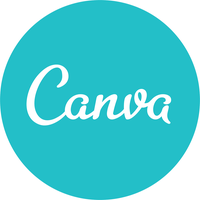Canva's Bold Move: Acquiring Leonardo AI to Transform Creative Design
July 31, 2024, 9:41 am

Location: Australia, New South Wales, Sydney
Employees: 1001-5000
Founded date: 2012
Total raised: $686.2M

Location: Australia, New South Wales, Sydney
Employees: 11-50
Founded date: 2022
Total raised: $47M
In a world where creativity meets technology, Canva has made a significant leap. The design platform, beloved by millions, has acquired Leonardo AI, an Australian startup specializing in generative artificial intelligence. This acquisition is not just a business deal; it’s a strategic maneuver to redefine the landscape of digital design.
Canva, known for its user-friendly interface and extensive design tools, is stepping up its game. The acquisition, announced on July 30, 2024, aims to enhance Canva's AI capabilities, making it a formidable player against industry giants like Adobe. The financial details of the deal remain under wraps, but the implications are clear: Canva is serious about its future in AI.
Leonardo AI, founded in 2022, initially focused on revolutionizing video game asset creation. However, its vision quickly expanded. The startup developed a platform that caters to various industries, including fashion, advertising, and education. With 19 million users generating over a billion images, Leonardo AI has proven its worth in the competitive creative AI space.
The integration of Leonardo’s technology into Canva’s existing suite of tools promises to unlock new creative possibilities. The “Phoenix” model, Leonardo’s flagship AI, will soon be part of Canva’s Magic Studio. This means that over 190 million Canva users will gain instant access to advanced generative capabilities. Imagine the creative potential when users can transform simple text prompts into stunning visuals in real-time.
Leonardo AI’s unique features, such as the “Live Canvas,” allow users to sketch ideas that the AI instantly enhances. This blend of human creativity and machine learning creates a dynamic environment for designers. It’s like having a creative partner that never sleeps.
But the acquisition is not without its challenges. Questions about the ethical use of training data loom large. Leonardo AI emphasizes its commitment to using licensed and publicly available data. Canva has also pledged $200 million to compensate creators who allow their content to be used for training AI models. This move highlights Canva’s dedication to ethical AI development, a crucial factor in today’s landscape.
As Canva integrates Leonardo AI’s technology, it also strengthens its position in the market. The design platform has been on a mission to enhance its AI offerings for years. The journey began with background removal tools in 2019 and accelerated with the launch of Magic Studio, a suite of AI tools that has been used over seven billion times. Each step has been a building block, leading to this pivotal moment.
Canva’s acquisition of Leonardo AI marks its eighth acquisition overall and the second in 2024. Previous acquisitions, such as Kaleido and Affinity, have laid the groundwork for Canva’s current AI initiatives. With each acquisition, Canva expands its capabilities and resources, creating a robust ecosystem for designers.
The competitive landscape is heating up. As new-age creative companies emerge, Canva is positioning itself as a leader in AI-powered design. The battle against established players like Adobe is fierce, but Canva’s innovative approach and strategic acquisitions give it an edge.
The integration of Leonardo AI is expected to enhance user experience significantly. Canva users will benefit from faster and more compelling visual generations. This means less time spent on tedious tasks and more time for creativity. The potential for collaboration and innovation is immense.
However, the rollout of these new capabilities remains a mystery. Canva has not disclosed how the integration will unfold. Users are eager to see how Leonardo AI’s technology will enhance their creative processes. Will it streamline workflows? Will it introduce new features that redefine design? Only time will tell.
As Canva continues to evolve, its commitment to user satisfaction remains paramount. The platform has built a loyal user base by prioritizing accessibility and creativity. With the addition of Leonardo AI, Canva is poised to take its offerings to new heights.
In a world where design is increasingly digital, the fusion of creativity and technology is essential. Canva’s acquisition of Leonardo AI is a testament to this belief. It’s a bold move that signals a new era in design.
As the dust settles, one thing is clear: Canva is not just a design tool; it’s becoming a powerhouse of innovation. The future of creative design is bright, and Canva is leading the charge. With each new feature and acquisition, the platform is redefining what it means to be a designer in the digital age.
In conclusion, Canva’s acquisition of Leonardo AI is more than a business transaction. It’s a strategic alliance that promises to reshape the creative landscape. As the integration unfolds, users can expect a wave of new possibilities. The canvas of the future is being painted, and Canva is at the forefront of this artistic revolution.
Canva, known for its user-friendly interface and extensive design tools, is stepping up its game. The acquisition, announced on July 30, 2024, aims to enhance Canva's AI capabilities, making it a formidable player against industry giants like Adobe. The financial details of the deal remain under wraps, but the implications are clear: Canva is serious about its future in AI.
Leonardo AI, founded in 2022, initially focused on revolutionizing video game asset creation. However, its vision quickly expanded. The startup developed a platform that caters to various industries, including fashion, advertising, and education. With 19 million users generating over a billion images, Leonardo AI has proven its worth in the competitive creative AI space.
The integration of Leonardo’s technology into Canva’s existing suite of tools promises to unlock new creative possibilities. The “Phoenix” model, Leonardo’s flagship AI, will soon be part of Canva’s Magic Studio. This means that over 190 million Canva users will gain instant access to advanced generative capabilities. Imagine the creative potential when users can transform simple text prompts into stunning visuals in real-time.
Leonardo AI’s unique features, such as the “Live Canvas,” allow users to sketch ideas that the AI instantly enhances. This blend of human creativity and machine learning creates a dynamic environment for designers. It’s like having a creative partner that never sleeps.
But the acquisition is not without its challenges. Questions about the ethical use of training data loom large. Leonardo AI emphasizes its commitment to using licensed and publicly available data. Canva has also pledged $200 million to compensate creators who allow their content to be used for training AI models. This move highlights Canva’s dedication to ethical AI development, a crucial factor in today’s landscape.
As Canva integrates Leonardo AI’s technology, it also strengthens its position in the market. The design platform has been on a mission to enhance its AI offerings for years. The journey began with background removal tools in 2019 and accelerated with the launch of Magic Studio, a suite of AI tools that has been used over seven billion times. Each step has been a building block, leading to this pivotal moment.
Canva’s acquisition of Leonardo AI marks its eighth acquisition overall and the second in 2024. Previous acquisitions, such as Kaleido and Affinity, have laid the groundwork for Canva’s current AI initiatives. With each acquisition, Canva expands its capabilities and resources, creating a robust ecosystem for designers.
The competitive landscape is heating up. As new-age creative companies emerge, Canva is positioning itself as a leader in AI-powered design. The battle against established players like Adobe is fierce, but Canva’s innovative approach and strategic acquisitions give it an edge.
The integration of Leonardo AI is expected to enhance user experience significantly. Canva users will benefit from faster and more compelling visual generations. This means less time spent on tedious tasks and more time for creativity. The potential for collaboration and innovation is immense.
However, the rollout of these new capabilities remains a mystery. Canva has not disclosed how the integration will unfold. Users are eager to see how Leonardo AI’s technology will enhance their creative processes. Will it streamline workflows? Will it introduce new features that redefine design? Only time will tell.
As Canva continues to evolve, its commitment to user satisfaction remains paramount. The platform has built a loyal user base by prioritizing accessibility and creativity. With the addition of Leonardo AI, Canva is poised to take its offerings to new heights.
In a world where design is increasingly digital, the fusion of creativity and technology is essential. Canva’s acquisition of Leonardo AI is a testament to this belief. It’s a bold move that signals a new era in design.
As the dust settles, one thing is clear: Canva is not just a design tool; it’s becoming a powerhouse of innovation. The future of creative design is bright, and Canva is leading the charge. With each new feature and acquisition, the platform is redefining what it means to be a designer in the digital age.
In conclusion, Canva’s acquisition of Leonardo AI is more than a business transaction. It’s a strategic alliance that promises to reshape the creative landscape. As the integration unfolds, users can expect a wave of new possibilities. The canvas of the future is being painted, and Canva is at the forefront of this artistic revolution.

